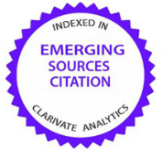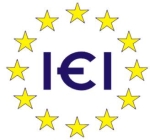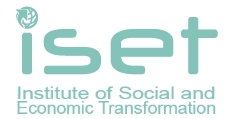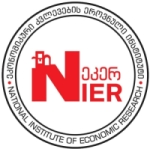Digital Tools for Accounting and Analytical Support of Enterprises: Innovation and Management Aspect
Abstract
Introduction. The modern global economy requires the digitalization of all spheres of enterprise activity, including accounting and analytical processes. This creates new synergistic effects on all related production, management, and business processes and new opportunities and business directions. The analytical process begins to include new information resources, which gives an impetus to the systematic development of support for decision-making by the management of enterprises, increasing the level of relevance of management decisions, and providing opportunities for operational restructuring of market tactics and strategies.
Aim and tasks. The study aims to introduce digital tools for analytical accounting support for Ukrainian enterprises based on innovative management aspects and develop a mathematical model for using digital resources to optimize the architecture of enterprise information systems.
Results. A mathematical model of the use of digital resources was developed to optimize the architecture of the company's information systems. The process of introducing digital tools for accounting and analytical support of enterprises in Ukraine was also studied and compared with the practice of their implementation under the conditions of “Economy 4.0” in developed countries. The advantages of introducing digital tools for accounting and analytical support were determined and obstacles to this process are named. It is indicated that the main guarantee of the effectiveness of the use of digital tools in view of the innovation-management aspect of their implementation is adaptability to internal and external influences, technological innovations, changes in tasks, goals, and even the sphere of economic activity of the enterprise. It is noted that this largely depends on the architecture of the information systems. According to estimates, the annual “cumulative effect” growth rate from introducing IT technologies in accounting and analytical processes may exceed 19%.
Conclusions. The developed mathematical model makes it possible to propose a new approach to the transformation of the system of digital accounting tools and analytical support instead of the traditional eclectic approach, which ensures effective auxiliary functionality or implements new functionality of the entire information management system, the elements of which are digital accounting tools. Factors that prevent the implementation of digital tools, which will increase the competitiveness of Ukrainian enterprises, are indicated.
Keywords:
digital tools, innovation, accounting and analytical support, mathematical model, diversification.References
Al-Dmour, A. H., & Al-Dmour, R. H. (2018). Applying Multiple Linear Regression and Neural Network to Predict Business Performance Using the Reliability of Accounting Information System. International Journal of Corporate Finance and Accounting (IJCFA), 5(2), 12-26. https://doi.org/10.4018/IJCFA.2018070102
Berdiyeva, О., Islam, M.U., & Saeedi, M. (2021). Artificial Intelligence in Accounting and Finance: Meta-Analysis. International Business Review, 3(1), 56-79. https://doi.org/10.37435/NBR21032502
Bonsón, E., & Bednárová, M. (2019). Blockchain and its implications for accounting and auditing. Meditari Accountancy Research, 27(5), 725–740. https://doi.org/10.1108/medar-11-2018-0406
Calinescu, T. (2019). Creative accounting and audit of economic activity of enterprises. Chapter of the economic reference, 2 (3-4), 27-34. https://doi.org/10.32620/cher.2019.2.11
Dankevych, A., Perevozova, I., Nitsenko, V., Lozinska, L., & Nemish, Y. (2023). Effectiveness of Bioenergy Management and Investment Potential in Agriculture: The Case of Ukraine. Green Energy and Technology. Springer, Cham. https://doi.org/10.1007/978-3-031-30800-0_6
Deloitte Touche Tohmatsu Limited. (2023). Deloitte research. Blockchain: A technical primer. https://www2.deloitte.com/insights/us/en/topics/emerging-technologies/blockchain-technical-primer.html
Druzhynina, V., Likhonosova, G., Lutsenko, G., & Kushal, I. (2020). Innovative Technology in Terms of Socio-Economic Value Diffusion: Accounting and Analytical Support. European Journal of Sustainable Development, 9(3), 476. https://doi.org/10.14207/ejsd.2020.v9n3p476
El-Dalabeeh, A. el-Rahman Kh., & AlZughoul, M. S. (2021). The Impact of Expert Systems on Enhancing the General Controls over the Computerized Accounting Information Systems. International Journal of Academic Research in Accounting, Finance and Management Science, 9, 4, 207–217. https://doi.org/10.6007/ijarafms/v9-i4/6838
Gibradze, G., Guchua, A., & Gogua, G. (2022). The Role of Modern Technologies in Military Conflicts of the 21st Century. Ukrainian Policymaker, 11, 26-34. https://doi.org/10.29202/up/11/4
Hladun, V., & Kret, I. (2018). Theoretical and methodological principles of IT audit as an instrument of strategic enterprise management. Scientific Notes of Lviv University of Business and Law, 19, 47-52.
Ingram, K., Diachenko, O., Halytskyi, O., Nitsenko, V., Romaniuk, M., & Zhumbei, M. (2022). Formalization of the Optimal Choice of the Activities of Agricultural Enterprises for the Implementation of Information and Communication Technologies. Financial and Credit Activity: Problems of Theory and Practice, 3(44), 141-149. https://doi.org/10.55643/fcaptp.3.44.2022.3758
Khmel, I. (2021). Humanization of Virtual Communication: from Digit to Image. Philosophy and Cosmology, 27, 126-134. https://doi.org/10.29202/phil-cosm/27/9
Khorunzhak, N., & Lukanovska, I. (2019). Accounting in the digital economy: problems and prospects. Black Sea Economic Studies, 175-179. https://doi.org/10.32843/bses.45-32
Kravet, T. D., McVay, S. E., & Weber, D. P. (2018). Costs and Benefits of Internal Control Audits: Evidence from M&A Transactions. Review of Accounting Studies, Forthcoming. 5, 1-48. http://dx.doi.org/10.2139/ssrn.2958318
Kroon, N., do Céu Alves, M., & Martins, I. (2021). The Impacts of Emerging Technologies on Accountants’ Role and Skills: Connecting to Open Innovation—A Systematic Literature Review. Journal of Open Innovation: Technology, Market, and Complexity, 7, 3. https://doi.org/10.3390/joitmc7030163
Li, J. (2021). Simulation of enterprise accounting information system based on improved neural network and cloud computing platform. Journal of Ambient Intelligence and Humanized Computing, 13(S1), 123–123. https://doi.org/10.1007/s12652-021-03067-2
Ma, B., & Hou, Y. (2021). Artificial Intelligence Empowers the Integrated Development of Legal Education: Challenges and Responses. Future Human Image, 16, 43-54. https://doi.org/10.29202/fhi/16/4
Meiryani, Y., Sun, S., Muhammad, I., & Verren, L. (2020). The Effect of System User Support on Accounting Information Systems. Systematic Reviews in Pharmacy, 11(8), 76-82.
Ministry of Finance of Ukraine. (2019). On approval of the translation of the Taxonomy of financial statements according to international financial reporting standards No. 452. https://mof.gov.ua/
Ostapchuk, T., Orlova, K., Biriuchenko, S., Dankevych, A., & Marchuk, G. (2021). Defuzzification in the process of managerial estimating the value of agricultural lands. Agricultural and Resource Economics: International Scientific E-Journal, 7(4), 62-81. https://doi.org/10.51599/are.2021.07.04.04
Petchenko, M., Fomina, T., Balaziuk. O., Smirnova. N., & Luhova, O. (2023). Analysis of trends in the implementation of digitalization in accounting (Ukrainian case). Financial and credit activity: problems of theory and practice, 1(48), 105-113. https://doi.org/10.55643/fcaptp.1.48.2023.3951
Schiavi, G. S., da Silva Momo, F., Maçada, A. C. G., & Beh, A. (2020). On the Path to Innovation: Analysis of Accounting Companies’ Innovation Capabilities in Digital Technologies. Revista Brasileira de gestão de negócios, 22, 2, 381-405. https://doi.org/10.7819/rbgn.v22i2.4051
Silakova, H., Solomka, O., Bila, I., Koliadych, O., & Sanduhei, V. (2022). Digital technologies and their impact on economic and social spheres in Ukraine. Naukovyi Visnyk Natsionalnoho Hirnychoho Universytetu, 6, 135-141. https://doi.org/10.33271/nvngu/2022-6/135.
Skrynkovskyy, R., Hladun, V., & Kramar, M. (2019). Information Technologies in the Organization of Accounting at the Enterprise. Traektoriâ Nauki = Path of Science, 5(2), 3001-3010. https://doi.org/ 10.22178/pos.43-3
Sokiran, M., Zubko, O., & Levchenko, D. (2022). Space Information and Technologies in the Military Activity of Ukraine: Legal Aspect. Advanced Space Law, 9, 66-80. https://doi.org/10.29202/asl/9/7
Spilnyk, I., & Palukh, M. (2019). Accounting in the digital economy conditions. International scientific journal, 1-2, 83-96. https://doi.org/10.35774/ibo2019.01.083
State Statistics Service of Ukraine. (2023). Use of information and communication technologies at enterprises. https://www.ukrstat.gov.ua.
Stavroyiannis, S., Babalos, V., Bekiros, S., Lahmiri, S., & Uddin, G. S. (2019). The high frequency multifractal properties of Bitcoin. Physica A: Statistical Mechanics and its Applications, 520, 62-71. https://doi.org/10.1016/j.physa.2018.12.037.
Storozhuk, T.M., & Doionko, A.M. (2019). Features of compilation of financial statements in countries of the “Great seven”. Eastern Europe: Economy, Business and Management, 2 (19), 398-403.
Tenyukh, Z., & Pelekh, U. (2022). Digitalization of accounting in Ukraine: state and prospects of development. Economics and Society, 41, 1–8. https://doi.org/10.32782/2524-0072/2022-41-66
Toporkova, O., & Kasianiuk, Y. (2022). Digital technologies of accountingand control of settlement discipline on railway transport. Economy and society, 40. https://doi.org/10.32782/2524-0072/2022-40-21
Tsygankova, T., Yatsenko, O., Obolenska, T., Gordieieva, T., & Osadchuk, V. (2023). Influence of Industry 4.0 on strategies of companies entering the global market of data integration services. Naukovyi Visnyk Natsionalnoho Hirnychoho Universytetu, 2, 141-148. https://doi.org/10.33271/nvngu/2023-2/141
Uzhva, A., Belinska, S., & Lazarieva, O. (2022). Accounting and analytical support of enterprises in the digital economy. Naukovyi Visnyk Natsionalnoho Hirnychoho Universytetu, 3, 136-140. https://doi.org/10.33271/nvngu/2022-3/136
If the article is accepted for publication in the journal «Economics. Ecology. Socium» the author must sign an agreementon transfer of copyright. The agreement is sent to the postal (original) or e-mail address (scanned copy) of the journal editions.






















